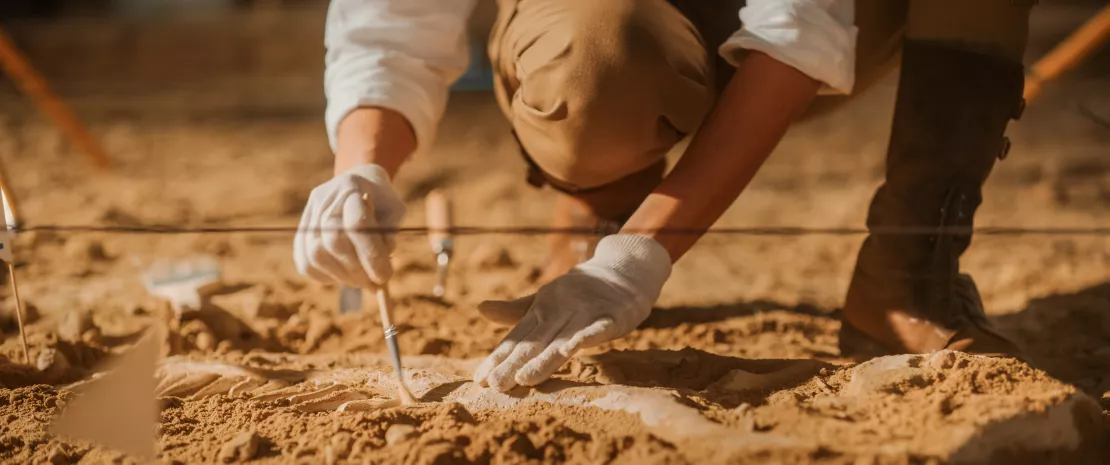Beer and Roquefort: when the microbiota reveals what our ancestors ate
Cereals, pulses, berries... These are the frugal meals we imagine on our European ancestors’ tables. However, an analysis of their gut microbiota, via human feces preserved for over three thousand years in Austrian salt mines, reveals that they also had blue cheeses and beer on their plates.
- Learn all about microbiota
- Microbiota and related conditions
- Act on your microbiota
- Publications
- About the Institute
Healthcare professionals section
Find here your dedicated section
Sources
This article is based on scientific information

About this article
Bones, pottery, weapons, textile fragments... The treasures unearthed by archaeologists during excavations allow us to better understand the lifestyles of our ancestors. Feces are also a precious source of information, helping us understand what our ancestors ate. In some archaeological sites, such as the underground salt mines of Hallstatt in Austria, prehistoric human excrement, or “paleofeces”, have survived since the Iron Age, safe from degradation. These mines provide a wealth of information on the diet, health, and gut microbiota of our distant ancestors. This encouraged a team of Italian and Austrian researchers to take a closer look at some samples.
Microbiota reveals “non-Westernized” diet persisted until Baroque period
The microscopic study of
(sidenote:
Foor stool samples
One sample from the Bronze Age, two from the Iron Age, and one from the Baroque period.
)
revealed that the diet of our European ancestors was based on cereals (barley, spelt, millet, etc.), pulses, wild fruits (apples, blueberries), and nuts. A DNA analysis of the bacteria in the stools showed that their gut microbiota was similar to that of populations that follow a non-Westernized diet based on unprocessed food products, fruits, and vegetables. The researchers believe that this type of diet lasted until the eighteenth century in Europe, after which a more modern lifestyle, the
(sidenote:
Western diet
The Western diet is characterized by an excess of sugars, certain fats, processed foods, and environmental pesticides, and by a lack of fiber. It has been associated with obesity and certain inflammatory and metabolic disorders, such as type 2 diabetes mellitus, insulin resistance, and inflammatory bowel disease.
Siracusa F, Schaltenberg N, Villablanca EJ, et al. Dietary Habits and Intestinal Immunity: From Food Intake to CD4+ T H Cells. Front Immunol. 2019 Jan 15;9:3177.
)
, and medical advances altered the gut microbiota.
Roquefort cheese already popular with gourmets nearly 3,000 years ago
One of the Iron Age samples caused astonishment among the scientists. It was exceptionally rich in DNA from two species of (sidenote: Microorganisms Living organisms that are too small to be seen with the naked eye. They include bacteria, viruses, fungi, archaea and protozoa, and are commonly referred to as “microbes”. What is microbiology? Microbiology Society. ) : Penicillium roqueforti and Saccharomyces cerevisiae. These two yeasts are still used today, the first to make blue cheeses and the second to make beer, wine, and bread. This shows that “processed foods” already existed in Iron Age Europe.
It was already known that our Iron Age ancestors produced beer, but the researchers feel that the presence of blue cheeses demonstrates the sophistication of ancient European culinary traditions. Salted with natural salt, inoculated with yeast in wooden vats, the cheeses seem to have matured in ideal conditions as regards temperature and humidity. The recipe still works for the Roquefort cheese we eat today.











